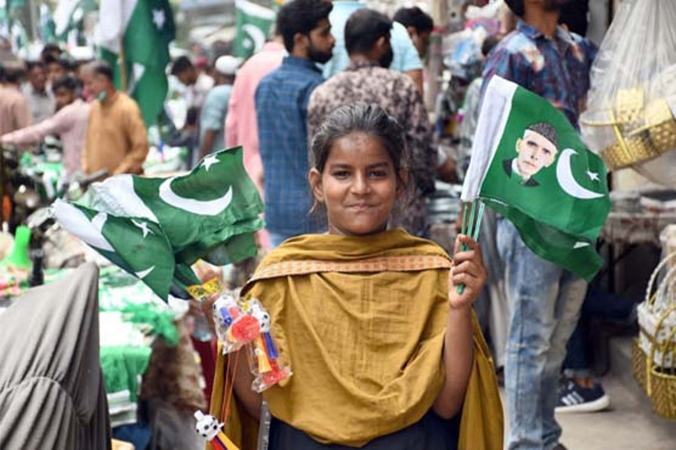Pakistan Independence: Learning lesson from history

With 77 years down the road and people still looking for panacea to their hardships, the downtrodden are once again looking towards those in the helm of affairs to unveil some program for their overall socio-economic uplift.
When we ponder on philosophy of Allama Dr Muhammad Iqbal and wisdom of Quaid-e-Azam Muhammad Ali Jinnah, we feel we have not yet become a nation but a crowd running towards an unknown destination.
Peeping through the history, we find that during 800 years rule of British regime especially after failure of 1857 uprising, Muslims were increasingly marginalized, oppressed and deprived of fundamental rights and liberties in United India. They faced intellectual, political and educational decline under the British rule and relegated to status of rivals after East India Company overthrew the Mughal emperors as we feel today among the comity of nations. Then Sir Syed Ahmed Khan emerged on the horizon as a beacon of hope for Muslims as a prominent educationist and ignited quest for knowledge among Muslims by establishing educational institutes.
“Sir Syed Ahmed Khan led an intellectual revolution among Muslims through educational, political and social reforms. His efforts ensured political rehabilitation of Muslims and their social, economic, and educational advancement,” said Muhammad Younas Khan, Chairman Pakistan Studies Department, Islamia College, Peshawar.
Sir Syed established a modern school at Ali Garh for Muslim students that became a college in 1877 and then a university where Muslim students were imparted modern education. All India Muhammadan Educational Conference (AIMEC), founded in Aligarh in 1886, was Sir Syed’s vision for modern education, socio-economic empowerment and political unity among Muslims.
“Sir Syed’s reforms excelled Muslims in various fields whose strong voices, the British rulers also had to listen,” Younas noted and said prominent figures like Sardar Abdul Qayyum Khan, Abdur Rab Nishtar, Maulana Muhammad Ali Johar, Nawabzada Liaquat Ali Khan and Chaudhry Rehmat Ali also joined hands with Sir Syed for wellbeing of Muslims.
Dr Younas said the independence movement gained momentum with the establishment of All India Muslim League (AIML) on December 30, 1906 in Dhaka and its efforts resulted in right for Muslims to elect their representatives to Legislative Councils under 1909 Indian Legislative Act. In 1913, the Muslims demanded ‘appropriate self-government’ in India through a resolution supported by Quaid-e-Azam Muhammad Ali Jinnah, who joined AIML in the same year after observing the Indian Congress’s insincerity towards Muslims.
From there onwards, after passing through different phases, the destination got clear after Dr. Allama Muhammad Iqbal’s historic 1930 address in Allahabad where he proposed a separate state for Muslims of India.
“Allama Iqbal articulated the two-nation theory, stressing a separate homeland for Muslims,” Dr. Younas said and explained that Pakistan Movement progressed significantly after Chaudhary Rehmat Ali proposed the name “Pakistan” in 1933. The name ‘Pakistan’ and Iqbal’s address set a clear direction for Muslims to achieve their goal.
The historic movement reached its zenith on March 23, 1940, when Quaid-e-Azam Muhammad Ali Jinnah led the passing of historic Pakistan Resolution in Lahore.
Thereafter, Quaid-e-Azam reorganized AIML on modern lines, visiting Muslim-majority provinces to gather support. His untiring efforts gained overwhelming support in the 1945-46 elections, where AIML won all reserved Muslim seats in central assembly and majority of provincial seats.
Following AIML’s success, Quaid-e-Azam insisted on Pakistan’s establishment before the Cabinet Mission of 1946 that eventually resulted in a partition plan proposed by Lord Mountbatten, announced on June 3, 1947.
It was only after a relentless struggle by Muslim leaders of India under the leadership of Quaid-e-Azam Muhammad Ali Jinnah that Pakistan appeared on the world map on August 14, 1947 and the nation celebrates this day every year as ‘Independence Day.’
Leave a Comment